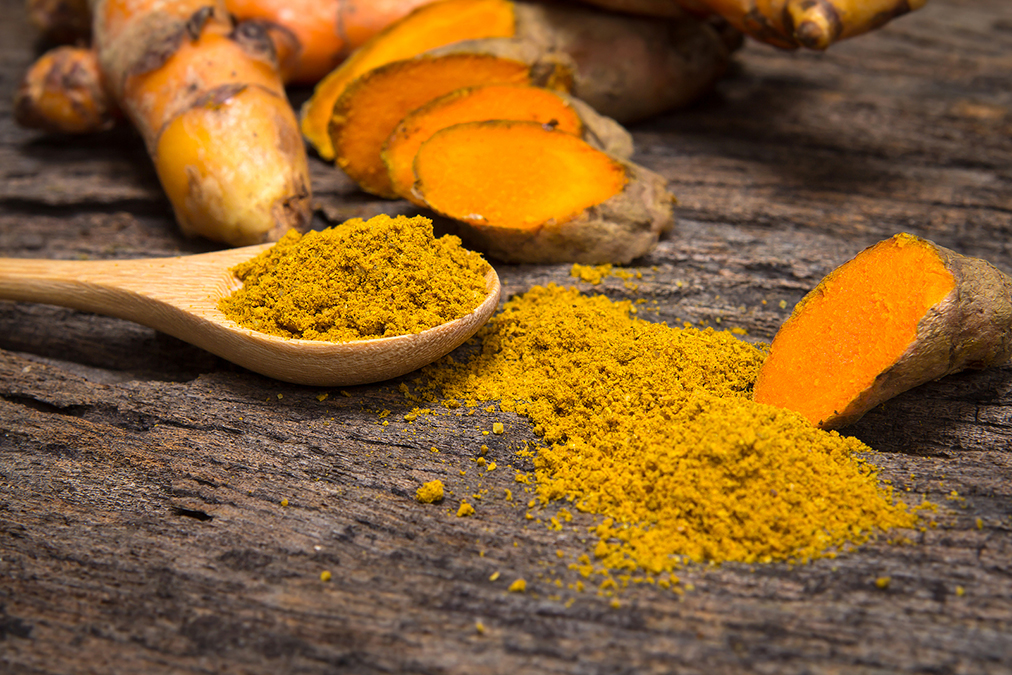 Gout is caused by a buildup of urate crystals in the joints, which triggers inflammation.
Gout is caused by a buildup of urate crystals in the joints, which triggers inflammation.
Current medications to treat gout can lower uric acid levels and reduce inflammation, but they’re ineffective and often come with serious side effects.
A new, groundbreaking study published in Inflammopharmacology now reveals a common spice that can drastically improve all symptoms of gout.
Curcumin is a natural substance found in turmeric, a bright yellow spice commonly used in curries. It has anti-inflammatory properties, but our bodies might not absorb enough of it to have the health effects we want.
Scientists have a trick to solve this problem, however. They can create nanoparticles of the substance they want to test, Curcumin in this case. These are easier for our bodies to absorb.
They make these nanoparticles through a complex process of first dissolving the substance in a solvent, then adding an anti-solvent, and then evaporating all the chemicals so that only the original substance like Curcumin remains.
This is exactly the process the authors of this new study used to create curcumin nanoparticles. They then used mice to test the effects of these particles on gout.
First, they induced gout in the mice by injecting monosodium urate crystals, which mimic the urate crystals that cause gout in humans. This caused swelling in their ankles and increased the uric acid levels in their blood, replicating gout symptoms.
The mice were then divided into different groups. Three groups received different doses of the curcumin nanoparticles. Another group was given allopurinol, a common gout medication. A final group received no treatment. All treatments were given by mouth.
Compared to the untreated group, the curcumin administration significantly reduced many markers of gout.
-
1. Xanthine oxidase levels, indicating that curcumin may help regulate uric acid production.
2. Uric acid levels, suggesting that curcumin could potentially prevent gout attacks.
3. Ankle swelling, which is a clear sign of decreased inflammation in the joints.
4. Levels of inflammatory markers, indicating a dampened inflammatory response.
5. Liver and kidney issues, with curcumin helping to maintain normal liver and kidney function.
6. Abnormal blood fat profiles, with curcumin reducing the fat and cholesterol measured in their blood while increasing their healthy (HDL) cholesterol.
Curcumin treatment also increased levels of interleukin-10, an anti-inflammatory molecule. This further strengthens the evidence for curcumin’s anti-inflammatory properties.
This study is hugely important. It means that gout patients can hope for a new treatment that is both effective and comes with fewer side effects. It means potentially less pain, more mobility, and a better quality of life.
At this stage, however, curcumin supplements contain normal-sized particles that might not be absorbed as well by your body. They will still help, but they won’t be as effective as the nanoparticles the scientists used here.

 Overcoming IBD
Overcoming IBD Multiple Sclerosis
Multiple Sclerosis Banishing Bronchitis
Banishing Bronchitis Gum Disease Gone
Gum Disease Gone Overcoming Onychomycosis
Overcoming Onychomycosis Neuropathy No More
Neuropathy No More The Prostate Protocol
The Prostate Protocol Brain Booster
Brain Booster
 Ironbound
Ironbound
 Solution for Shingles
Solution for Shingles
 The Bone Density Solution
The Bone Density Solution
 The Ultimate Healing Protocol
The Ultimate Healing Protocol
 The Parkinson's Protocol
The Parkinson's Protocol
 The Chronic Kidney Disease Solution
The Chronic Kidney Disease Solution
 Overthrowing Anxiety
Overthrowing Anxiety The Fatty Liver Solution
The Fatty Liver Solution The Hypothyroidism Solution
The Hypothyroidism Solution
 The End of Gout
The End of Gout The Blood Pressure Program
The Blood Pressure Program
 The Oxigized Cholesterol Strategy
The Oxigized Cholesterol Strategy
 Stop Snoring And Sleep Apnea Program
Stop Snoring And Sleep Apnea Program
 The Arthritis Strategy
The Arthritis Strategy The Vertigo & Dizziness Program
The Vertigo & Dizziness Program The 3-Step Diabetes Strategy
The 3-Step Diabetes Strategy Hemorrhoids Healing Protocol
Hemorrhoids Healing Protocol The Erectile Dysfunction Master
The Erectile Dysfunction Master Weight Loss Breeze
Weight Loss Breeze The IBS Program
The IBS Program The Insomnia Program
The Insomnia Program The Migraine and Headache Program
The Migraine and Headache Program The Neck Pain Solution
The Neck Pain Solution The Menopause Solution
The Menopause Solution The Ejaculation Master
The Ejaculation Master The TMJ Solution
The TMJ Solution The Acid Reflux Solution
The Acid Reflux Solution The Fibromyalgia Solution
The Fibromyalgia Solution The Psoriasis Strategy
The Psoriasis Strategy